
The medical director of the Epilepsy program at the University of Toronto discussed her presentation at AES 2021 regarding the need to change how clinicians view and treat patients with developmental epileptic encephalopathies.

The medical director of the Epilepsy program at the University of Toronto discussed her presentation at AES 2021 regarding the need to change how clinicians view and treat patients with developmental epileptic encephalopathies.

Neurology News Network for the week ending December 11, 2021. [WATCH TIME: 4 minutes]
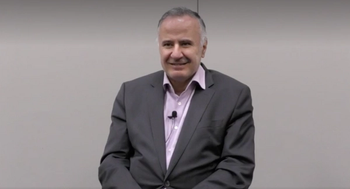
The director of Cleveland Clinic’s Epilepsy Center at the Cleveland Clinic Neurological Institute spoke on the latest advances with epilepsy surgery, as well as what still needs to be learned. [WATCH TIME: 5 minutes]
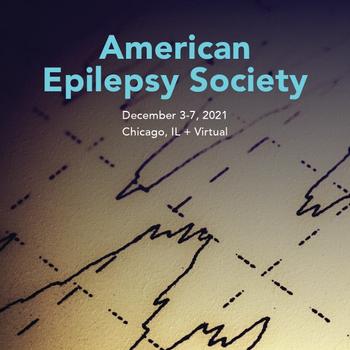
Leaders in the epilepsy space provided their thoughts on the most promising aspects, initial takeaways, and dominating conversations at the 2021 American Epilepsy Society annual meeting.

The director of Cleveland Clinic’s Epilepsy Center at the Cleveland Clinic Neurological Institute discussed poignant presentations from the 2021 American Epilepsy Society Annual Meeting. [WATCH TIME: 7 minutes]
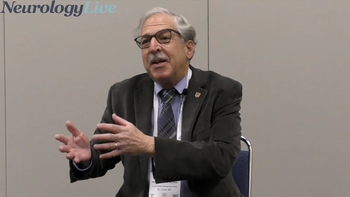
The neurologist from the Comprehensive Epilepsy Care Center for Children and Adults, in St. Louis, Missouri, discussed numerous presentations from AES 2021 that bolstered cenobamate’s known efficacy and safety profile. [WATCH TIME: 7 minutes]

Investigators suggest further studies to better determine is NPC had measurable benefits for patient quality of life.

Across all surgical procedures, the percentage of patients with seizure freedom for at least 12 months ranged from 20% to 35.7% for patients receiving cenobamate.
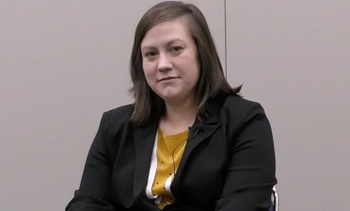
The scientific director at the Dravet Syndrome Foundation commented on the concern associated with vaccination in this patient population, noting that investigators have not observed an exacerbated risk profile with the COVID-19 vaccines. [WATCH TIME: 2 minutes]

In total, 6.4% of those with intellectual disability achieved seizure freedom and 37.5% had at least a 50% responder rate after treatment with perampanel.

While typically thought of as a disease that affects younger populations, Rebecca O’Dwyer, MD, stressed the importance and nuances of caring for older adults with epilepsy.

The scientific director at the Dravet Syndrome Foundation discussed a recent survey asking caregivers about the experiences of patients with DS following COVID-19 vaccination. [WATCH TIME: 3 minutes]

Findings presented at AES 2021 included data from children with tuberous sclerosis complex and drug refractory epilepsy who were not candidates for epilepsy surgery.

Four out of 6 patients with CDKL5 deficiency disorder and comorbid Lennox-Gastaut syndrome had a decrease in frequency of major motor seizures when treated with ganaxolone.

Half of the patients who were on a flexible, longer-term Cognitive Behavioral Therapy-informed psychotherapy treatment schedule demonstrated improvements in seizure frequency by more than 50%.

At the 12-month mark, more than 64% of patients had remained on perampanel, with an overall mean retention time of 10.8 months.

The clinical psychologist at Cleveland Clinic discussed the potential of using cognitive behavioral therapy for treatment of psychogenic non-epileptic seizures on cognitive behavioral therapy. [WATCH TIME: 3 minutes]

Findings were presented at AES 2021, with 56.7% of patients reporting a 50% or greater reduction in seizure frequency.
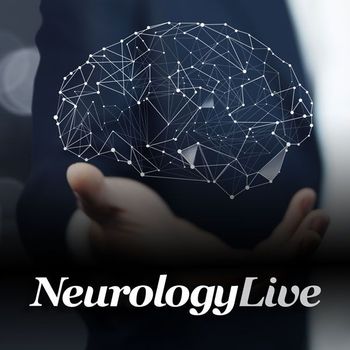
More than two-thirds of patients who received prednisolone after showing no response to vigabatrin demonstrated complete electroclinical response at 2 weeks, with most sustaining response at 6 weeks.

The staff neurologist at the Mellen Center for Multiple Sclerosis Treatment and Research at Cleveland Clinic outlined the positive feedback from patients when discussing telehealth. [WATCH TIME: 4 minutes]

A phase 3 trial has been initiated to further study masupirdine’s effect on agitation in patients with Alzheimer dementia.

The staff neurologist at the Mellen Center for Multiple Sclerosis Treatment and Research at Cleveland Clinic discussed the necessary data to support telemedicine’s integration into clinical care. [WATCH TIME: 4 minutes]

Data show a clinical benefit via a reduction in brain amyloid as early as 3 months in the open-label extension period.

The staff neurologist in the Neurological Institute’s Mellen Center for Multiple Sclerosis Treatment and Research at Cleveland Clinic outlined the process of choosing a therapy for patients with multiple sclerosis. [WATCH TIME: 4 minutes]

The director of the Mellen Center for MS Treatment and Research at Cleveland Clinic discussed the possibility of using multiple DMTs to combat the effects of MS. [WATCH TIME: 3 minutes]

The executive chair at the Rockefeller Neuroscience Institute at West Virginia University shed light on early data from a small sample of patients with early Alzheimer disease who underwent focused ultrasound treatment. [WATCH TIME: 5 minutes]

Discussing newer treatment options in the MS field, the staff neurologist in the Neurological Institute’s Mellen Center for Multiple Sclerosis Treatment and Research at Cleveland Clinic noted that patient preference can play a part in the decision-making process. [WATCH TIME: 3 minutes]

The staff neurologist in the Neurological Institute’s Mellen Center for Multiple Sclerosis Treatment and Research at Cleveland Clinic discussed emerging treatments in the MS field. [WATCH TIME: 2 minutes]

The executive chair of the Rockefeller Neuroscience Institute at West Virginia University discussed the potential of focused ultrasound for patients with AD, as well as key takeaways for clinicians from a recent study. [WATCH TIME: 5 minutes]

Despite not being significantly superior to placebo on agitation and aggression, lithium showed a greater reduction in those with high Young Mania Rating Scale scores.